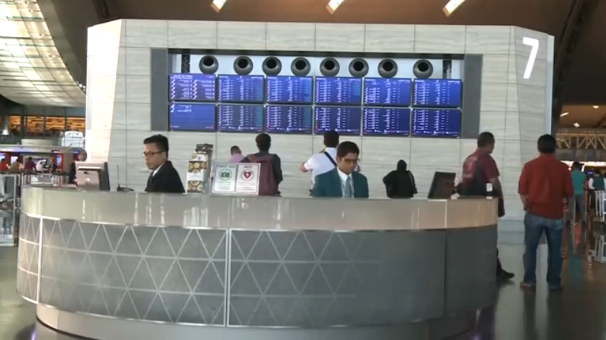
DOHA, Qatar (Reuters) — Qatar’s recent move to grant visa-free entry for nationals of 80 countries is aimed at decreasing the impact of its diplomatic row with Saudi Arabia and other regional nations, said a researcher on Thursday.
Brookings Doha Center researcher Adel Abdel Ghafar said the sanctions on Qatar following the rift have brought many negative impacts on the country’s economy.
“First of all, in the financial system, in terms of the trading between GCC (Gulf Cooperation Counsil) banks between Saudi banks … banks and Qatari banks has ground to a halt. There is also a bit of a dollar shortage when the crisis happened. People went to the banks to grab foreign currency. In addition, Standard and Poor’s, and Moody’s , the rating agencies, have downgraded some of the Qatari banks as well as Qatari institutions. Another economic impact has been the impact on the airline,” said Ghafar.
Moody’s said Qatar’s GDP would grow 2.4 percent in the year, a significant fall than the 13.3 percent which the country had sustained during 2006 and 2014.
The Qatari government has taken a series of measures, like adjusting imports and exports and easing immigration control, to keep itself afloat.
“They also changed some of the visa laws to allow for people to come and visit the country. (They) also changed some of the immigration laws, granting permanent residency to some long-standing residents who have been born here, but not have residency. All these moves are designed to create confidence in the Qatari economy, Qatari society because expatriates here in Qatar play a very part in economy and in society,” Ghafar said.
But Ghafar believed the crisis cannot be resolved in a short term, and one of the reasons is the conflicting message the United States has sent regarding the issue.
“The Kuwait efforts are very strong and continue, but yet to result in any fruits. Complicating factor is the U.S. administration. There are conflicting signals from the U.S. administration. Most recently, the U.S. has sent two envoys to continue the shuttle diplomacy between capitals. This is currently (what’s) ongoing. I do not foresee this crisis will be resolved immediately. But perhaps after the???? of September and October, potentially there may be de-escalation then,” he said.







